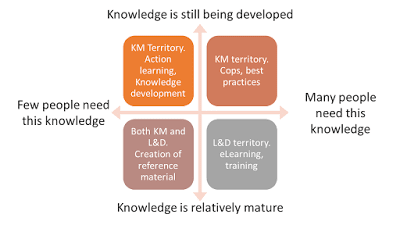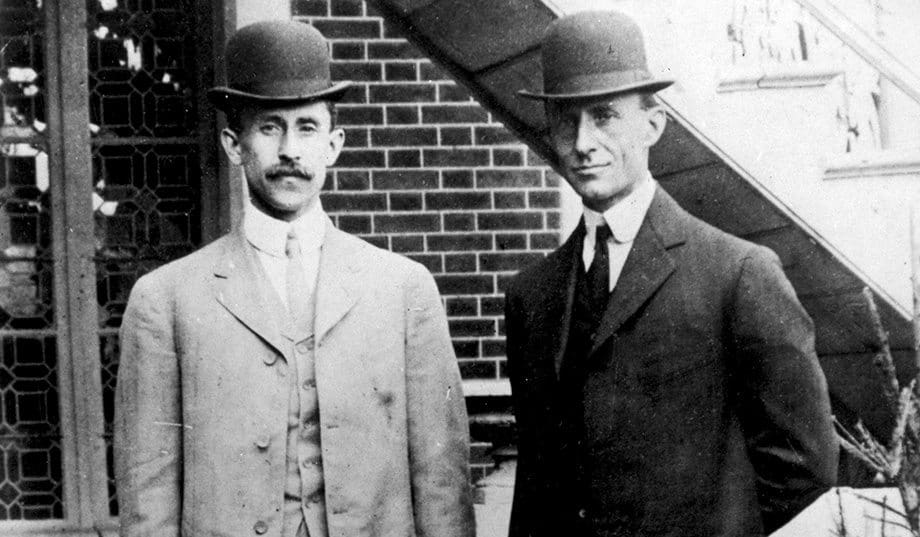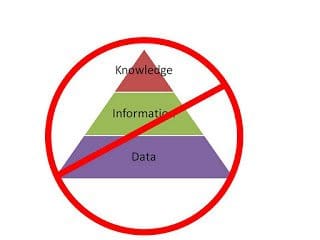Nick Milton
-
Nick Milton wrote a new post on the site CYBERCASEMANAGER ENTERPRISES 3 years, 7 months ago
Pride is an interesting motivator in Knowledge Management. In some cases it acts as a real dis-incentive, but if harnessed well it can be a powerful driver for KM behaviours.Proud Lion from Public Domain PicturesI […]

-
Nick Milton wrote a new post on the site CYBERCASEMANAGER ENTERPRISES 3 years, 7 months ago
Here is a reprised blog post presenting 3 potential levels of maturity for a lesson-learning system. Many or most organisations are stuck at level 1.Lesson-learning is a common component of KM management systems, […]

-
Nick Milton wrote a new post on the site CYBERCASEMANAGER ENTERPRISES 3 years, 7 months ago
Much of the value delivered through Knowledge Management comes as a result of solving problems. “How do you show the value of Knowledge Management?” Yet another client was asking me the same question – how can y […]

-
Nick Milton wrote a new post on the site CYBERCASEMANAGER ENTERPRISES 3 years, 7 months ago
People are often instinctively drawn towards one component of Knowledge Management. Here’s a way of looking at those components.Choices about the approach to KM are often made implicitly, emotionally, or through […]

-
Nick Milton wrote a new post on the site CYBERCASEMANAGER ENTERPRISES 3 years, 7 months ago
What are the limits to one person’s knowledge? Other than being “one personbyte”?Books in a stack by Evan Bench on FlickrThe April 1, 2017 edition of New Scientist magazine had the theme of Knowledge, and […]

-
Nick Milton wrote a new post on the site CYBERCASEMANAGER ENTERPRISES 3 years, 8 months ago
Is that really Tacit Knowledge in your head, or is it just the Stories you like to tell yourself?IMAGINATION by archanN on wikimedia commonsAll Knowledge Managers know about the difference between tacit knowledge […]

-
Nick Milton wrote a new post on the site CYBERCASEMANAGER ENTERPRISES 3 years, 8 months ago
One of the biggest challenges is knowledge re-use. How does the aviation industry address this challenge?Image from wikimedia commonsI often refer to aviation as a successful example of knowledge management, with […]

-
Nick Milton wrote a new post on the site CYBERCASEMANAGER ENTERPRISES 3 years, 8 months ago
Knowledge Management and L&D are both part of the spectrum for Organisational Learning. But where does one take over from the other?This topic has been a point of discussion ever since KM began. Where does KM […]

-
Nick Milton wrote a new post on the site CYBERCASEMANAGER ENTERPRISES 3 years, 8 months ago
Why were the Wright brothers the first to invent the aeroplane? Perhaps because there were two of them, and because they fought all the time.Wilbur and Orville Wright, from wikimedia commonsAnyone who is […]

-
Nick Milton wrote a new post on the site CYBERCASEMANAGER ENTERPRISES 3 years, 9 months ago
Culture is one of the major issues with KM implementation, as we have discussed regularly on this blog. A recent book, edited by Dana Tessier, throws new light on this topic, as discussed below. The book is e […]

-
Nick Milton wrote a new post on the site CYBERCASEMANAGER ENTERPRISES 3 years, 9 months ago
One of the more effective ways to introduce Knowledge Management is through solving a series of business problems. Here is a 12 step approach to doing just that.Image from wikimedia commonsI came across this […]

-
Nick Milton wrote a new post on the site CYBERCASEMANAGER ENTERPRISES 3 years, 9 months ago
Over the past several months, a drafting team from the British Standards Institute has been writing a guide to the ISO KM standard. This guide is now available in early draft form for public review and […]

-
Nick Milton wrote a new post on the site CYBERCASEMANAGER ENTERPRISES 3 years, 9 months ago
This blog post is a reprise from the archives, and concerns the question of where Knowledge comes from. In most of the Knowledge Management training courses I run, I ask the question “where does knowledge come f […]

-
Nick Milton wrote a new post on the site CYBERCASEMANAGER ENTERPRISES 3 years, 9 months ago
There is a clear view than knowledge lies in the “walls” and the “hallways” between the “rooms” of an organisation. Here are some of the implications of this view for Knowledge Management.Image from wikimedia […]

-
Nick Milton wrote a new post on the site CYBERCASEMANAGER ENTERPRISES 3 years, 10 months ago
How do you know your Knowledge Management strategy is in danger of crashing? Here are 6 signs.These 6 danger signs are from a 2009 blog post by Lucas McDonnell, reproduced as a Linked-In Pulse article in 2015, […]

-
Nick Milton wrote a new post on the site CYBERCASEMANAGER ENTERPRISES 3 years, 10 months ago
Here are 5 key skill areas you must not ignore when putting together your Knowledge Management implementation team. You need to have all of them on the team.Image from wikimedia commonsYou know the four […]

-
Nick Milton wrote a new post on the site CYBERCASEMANAGER ENTERPRISES 3 years, 10 months ago
This blog has already published several articles about KM success factors. Here is another slant on the topic.Communities of practice are a core component of any Knowledge Management Framework, and therefore […]

-
Nick Milton wrote a new post on the site CYBERCASEMANAGER ENTERPRISES 3 years, 10 months ago
To start with, you don’t need Knowledge Management to be applied everywhere – only in the few places where it makes a difference.FOCUSR by Libertarian Girl on Flickr There is always a balance to be struck between […]

-
Nick Milton wrote a new post on the site CYBERCASEMANAGER ENTERPRISES 3 years, 10 months ago
One of David Snowden’s principles is that “Knowledge can’t be conscripted, it can only be volunteered”. However waiting passively for voluntary contributions is the wrong way to spread knowledge. Ask for […]

-
Nick Milton wrote a new post on the site CYBERCASEMANAGER ENTERPRISES 3 years, 11 months ago
It is generally acknowledged that KM requires a culture of trust. But is remote working eroding trust, and what might this do to KM?Trust by Vic on FlickrThere are many studies of the links between Knowledge […]

- Load More




















